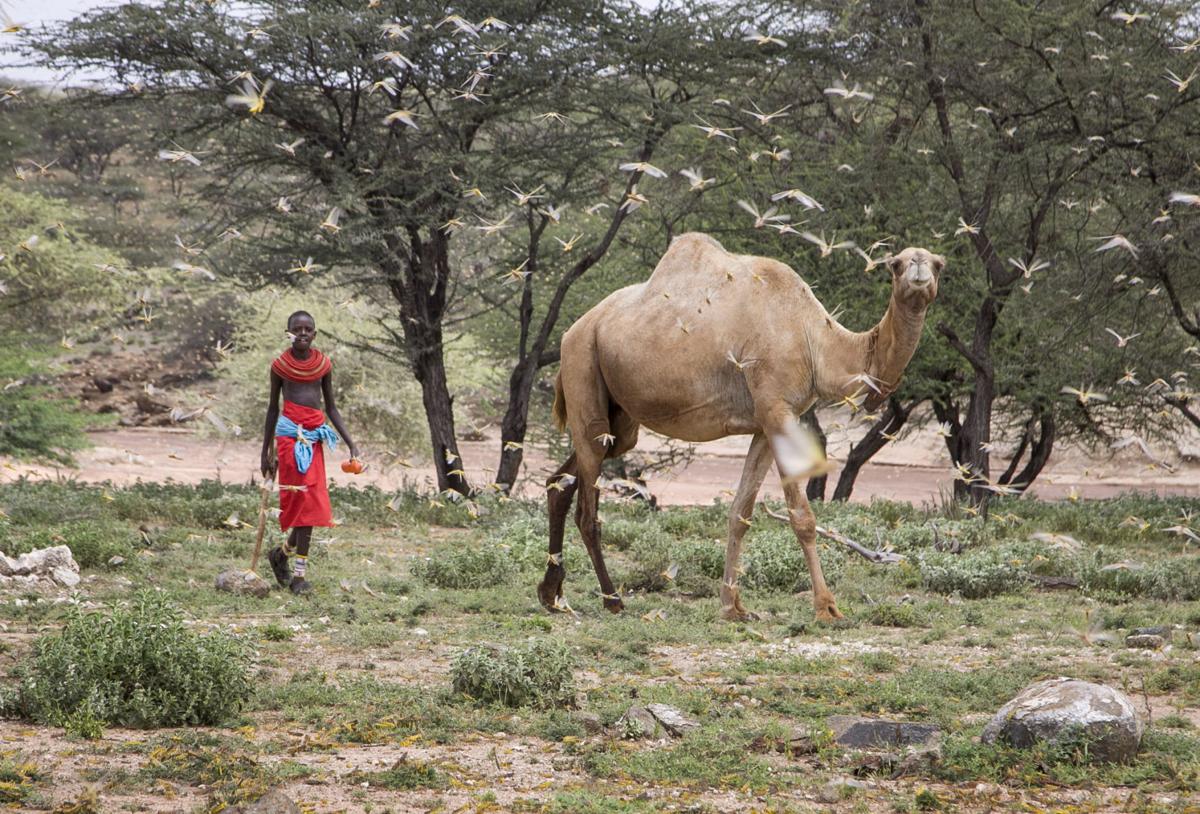UN call for aid as billions of locusts attack east Africa

A few minutes every morning is all you need.
Stay up to date on the world's Headlines and Human Stories. It's fun, it's factual, it's fluff-free.
The United Nations (UN) has called for international assistance to fight the worst invasion of desert locusts East Africa has seen in 25 years.
Ethiopia, Kenya and Somalia are all struggling with unprecedented numbers in vegetation devouring insects. According to the UN’s Food and Agricultural Organization (FAO), international aid is necessary to “avert any threats to food security, livelihoods, malnutrition".
Up to 200 billion locusts
There are reportedly up to 200 billion locusts in Kenya alone with the government spending $5 million to manage and contain the swarms. Local authorities, however, are “simply overwhelmed.”
FAO fears locust numbers could grow 500 times by June 2020 if the situation is left unchecked, especially when the locusts start laying eggs.
Ethiopia and Somalia have not seen a locust infestation of this scale for 25 years. Kenya has not seen a locust invasion this size in the past 70 years.
If the swarms are not contained in time and continue to grow and spread, South Sudan and Uganda are said to also be at risk.
A threat to food security
The invasion of the desert locusts threatens the food security in the sub-region of east Africa with each locust able to eat its own weight in food. That is about two grams every day, with a ton of locusts able to eat the same amount of food as about 2,500 people. Locusts are also able to travel up to 90 miles.
According to FAO, a swarm the size of Paris could eat the same amount of food as half the population of France in a single day.
“The speed of the pests’ spread and the size of the infestations are so far beyond the norm that they have stretched the capacities of local and national authorities to the limit,” said an FAO spokesperson.
“These regions, two thirds of the land, within our region, is what we call ASAL (arid and semi arid land), where pastoralism is a way of life. So if this is not dealt with quickly and timely, this will have an effect. A really serious effect on the food security of the whole of the region,” said Guleid Artan, Director of the Climate Prediction and Application Center.
A year of extreme weather
Irregular weather and climate conditions between October and December last year are said to have contributed to the spread of locusts in the region.
“Under a worst-case scenario, the invasion could become a plague if it is not contained quickly," said the FAO in a statement.
[article_ad]




Comments ()